“I’m able to speak and direct from a place of absolute and utter truth”: Sideeq Heard on Fat Ham at Swan Theatre
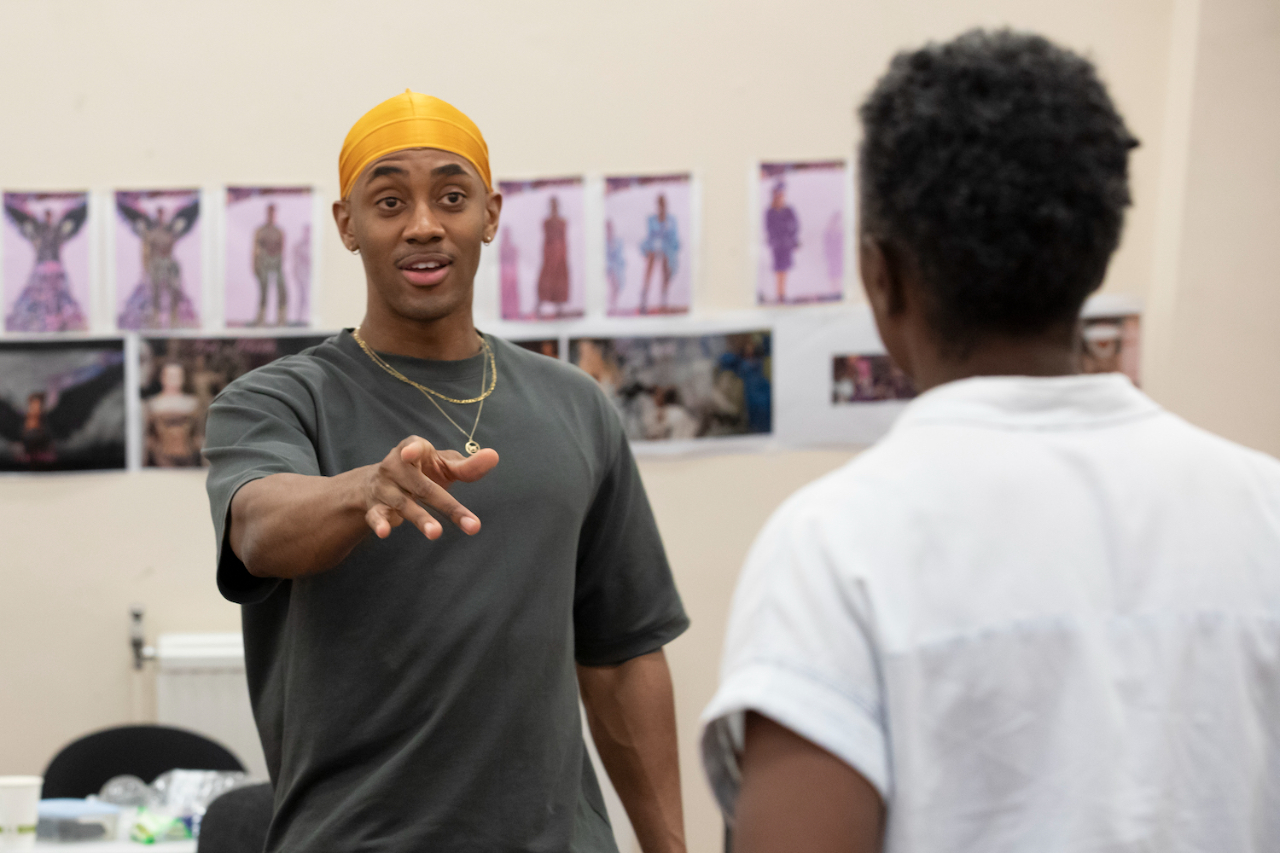
How do you turn a Shakespearean tragedy – with all the grisly and ferocious details written by the Bard – into a tragicomedy? James Ijames not only tweaked the genre, but, in his version of Hamlet, he wove in contemporary challenges and thought-provoking perspectives. In 2022, his work, titled Fat Ham, won the Pulitzer Prize for Drama. Three years later, this summer, the play received its European premiere in a Royal Shakespeare Company production in Stratford-upon-Avon. For its UK launch, the show is directed by Sideeq Heard, who has been involved in the production since day one, because of his previous roles as Associate Director in 2022 of the off-Broadway debut at The Public Theater (originally directed by Saheem Ali) and later on of its Broadway transfer.
As the play is ongoing in its four-week run, Heard, who is also an actor himself and a rapper, spoke to us about the power of laughter, his approach to storytelling, and the topicality and boldness of this dramatisation.
Thank you so much for your time, and congratulations for bringing Fat Ham to Stratford-Upon-Avon. How would you sum up this new, exciting production, and what makes it different from any other Hamlet, particularly the contemporary versions we’ve seen recently?
I would describe this production as a queer Black Hamlet BBQ. The production is very different from any other Hamlet simply because James has written a modern version of the text. It isn’t all archaic language. It’s very modern, very contemporary, very 2025, and it sits well in the mouth of modern people around the world. This production is particularly different because of the comedic stance that it takes. James is asking us to choose freedom and liberation over tragedy and horror. And although the script stays very close to what is the traditional Hamlet, this one really takes a leap of joy that I don’t think I’ve seen any other contemporary version jump for. Because James has kind of rewritten and twisted the narrative, it invites the audience into a place of freedom, beauty and ease in a way that a production normally doesn’t. The show is very bright, very buoyant and very bashful. It’s very in your face. How James treats the fourth wall is very malleable. This one pulls the audience in for the ride, and boy, it is a ride.
You have seen this show come to life since day one. How do you feel it has grown, developed, changed?
This play is such a magical play, and it came into the canon at the right time when we were questioning, how do we create contemporary queer work as an industry, especially in New York? And how do we create more diverse casts, diverse storytelling and diverse production and creative teams? This opportunity of Fat Ham came along and really pushed open that door in a way that has touched people. A huge theme in this play is family. We all have one, in some regard, whether chosen family, whether a given family and the magic in the play is recreating that family dynamic with each company so that they feel safe enough and seen enough. I’ve had the lucky experience of shaping each of these families in each city, in each state and watching it impact the audience in a way that has been amazing. I think the comedy has gotten sharper. We found different nuances in the play. But the root of it is family, and it works every single time.
I have read that in your directorial approach, you ask upfront, “What is my personal connection to this material? and “From what perspective should we enter the world?” What are/were the answers to those questions when it comes to Fat Ham?
When it comes to Fat Ham, I personally connect with his play by just being a queer Black man who has lived both in the south and up north in the States. I’ve experienced these two stories pretty much my entire life. My family loves throwing barbecues and gatherings and so I’ve had the luxury of experiencing what that family function looks like. I’m also queer, and so I’ve been on the journey of what it feels like to question your identity, to wonder how you fit and how to find your way to liberation and freedom in spite of society and family standards. That’s what’s giving me the insight and the connection to the material. I’m able to speak and direct from a place of absolute and utter truth.
It looks like we are dealing here with a tragicomedy – do you believe in the power of laughter to get certain messages through, rather than drama?
I 100% believe in the power of laughter. It’s magic because it’s about connection. When you think of comedy, the only reason we laugh is because we see something that we may have thought, or we see something that we may have experienced, and it is the job of that artist to humanise that and reflect it back in a way, with some lightness. Once we identify ourselves, we laugh at it because it’s a realisation that “Oh wait, that’s me!” The thing I love most about theatre and this play in particular is that it’s a comedy where you actually experience being connected in a room full of people in a way that often goes forgotten in our society, when we’re all on our phones and have our headphones on and we’re all in our little bubbles. For that moment in the theatre, we’re all laughing at similar jokes, whether it be Shakespeare puns or jokes about family. Dramas are the opposite. They’re actually made to awaken us and make us realise the gripping truth that we may be afraid of. But comedy is about pulling us together.
When did you first meet James Ijames?
I met James when I started working on Fat Ham in 2021, and I just connected with him. He’s Southern and knows who he is. He’s also queer identifying and Black, and so I just see him like an older brother or an uncle in a way – he is able to pour wisdom back into me throughout this journey. I’m so grateful that I’ve met him.
Do you have a favourite scene? Or a favourite technique/sequence displayed on stage?
My favourite scene starts when Rabby enters because even the staging in the show is so rhythmic. It’s very musical. It’s like we’re all playing in a jazz band. There’s a trumpet, there’s a bass, there’s a saxophone, even a piano, and it’s the first time in the play that all seven characters are present in the space. It’s so fun to craft those huge family scenes when everybody’s on stage: when you find the right rhythm, it is one of the most rewarding things because it’s not an easy feat at all. You have to think about who the primary person is and what the secondary conversation is. And then you have to constantly think about how the image on the stage is rotating. It can be very challenging, but I think the idea of solving the puzzle is much more exciting than the fear of failure. I feel very rewarded at the end of a rehearsal when we craft that whole group scene, and it works.
What has been the biggest challenge in your role so far?
I think the biggest challenge and the biggest blessing are one and the same, and it’s that I’m stepping into a role that once belonged to someone else. It’s difficult when you’re taking on a show and your job is essentially to recreate something that was so magical when it was first created. And I have to have the full vision of how it’s going to impart the lessons of family, the comedy and how to craft the rhythm that was once created with a completely different group of actors.
What would you like the UK audience to take home with them from seeing this show?
I hope the UK audience walks out of these theatres and thinks theatre can do something different, different than what they thought. I hope they believe in theatre as a healing tool. I hope they start to realise that theatre can be a source of great education, depth and drama, but also joy, vibrancy, buoyancy and celebration. I hope this show is shining a light in a way that it makes the UK audience just remember why they love theatre in the first place.
You are also an actor yourself (including credits in Kinky Boots, A Woman of No Importance and Little Women). And you were an Associate Director for an adaptation of Twelfth Night. Would you like one day to perform on stage in a Shakespearean work, and what would be your dream role/play?
I was supposed to perform in a Shakespearean work, but I couldn’t because I was doing Fat Ham. I absolutely love Shakespeare. I think right now it’s only fitting that I play Hamlet after working on Fat Ham for so long, I feel like the story and the journey of Hamlet, it just lives in me. I think I’ve been living it. Hamlet, I really connect with him.
How would you describe your music?
The reason I started rapping was because I was listening to music, and I never saw queer themes in music. As a queer person, I listened to tons of heteronormative singers and rappers who talk about the heteronormative experience, either literally or metaphorically, and I don’t often see the queer experience reflected in music. I decided to start creating music that explored the themes of relationships, but through a queer lens. The last song I released was called Soft Life, and it’s about celebrating the femininity inside the male body and feeling good about it, which isn’t something that I hear people talk about a lot. That is my goal with my music, and I have no doubt that one day my creativity as a theatre artist and my passion for storytelling will marry my passion for rap music in a way that I don’t know. I can’t say what will happen, but something will happen.
What are you most looking forward to during your time here in the UK?
I’m looking forward to just sightseeing, honestly and also getting to know the theatre scene. I want to get a sense of the sensibility. I think the UK theatre scene is very creative and at times avant-garde, daring, bold and artist-centred in a way that we don’t do in the States. I love absorbing as much art as I can while I’m in the UK.
What can you tell us is your next work-in-progress project?
The next project I’m working on is called Egg Play, which will be at the National Black Theatre in DC. It’s by Jeremy O’Brien and I’ve had the benefit of working on that play for about five years now. It’s a story about a queer couple who are trying to connect with each other. They have to go to counselling, and the counselling style is very new age. It explores queer relationships, sexuality, identity and romance in a way that I haven’t experienced a play doing. I can’t wait for people to experience it. It’ll be November 2026 in New York, so keep an eye out.
Thank you so much for your time!
Cristiana Ferrauti
Photo: Ali Wright
Fat Ham is at Swan Theatre until 13th September 2025. For further information or to book, visit the theatre’s website here.

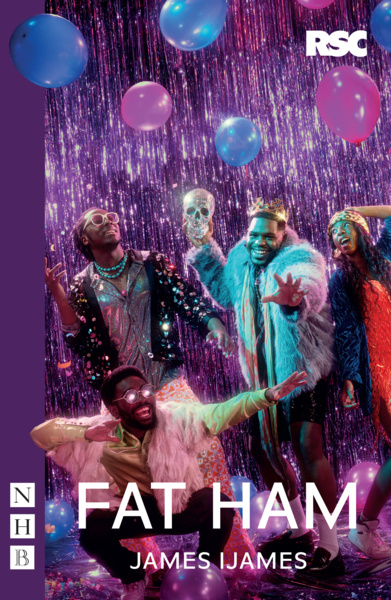
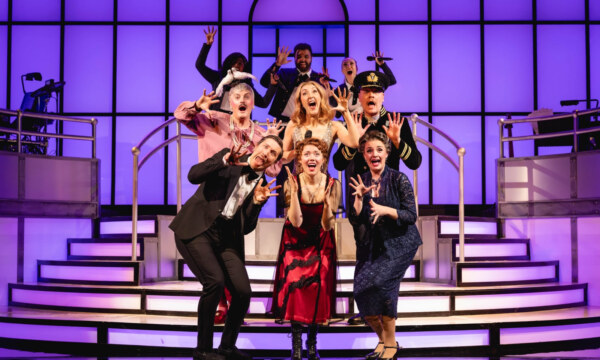
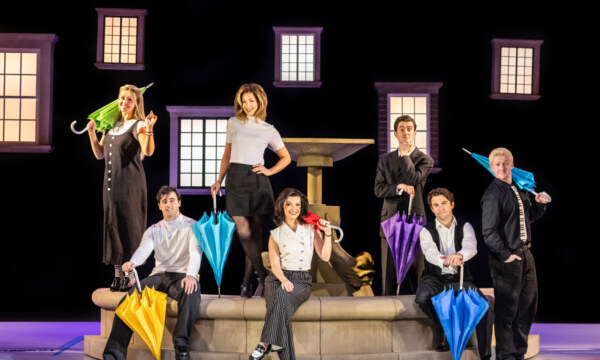
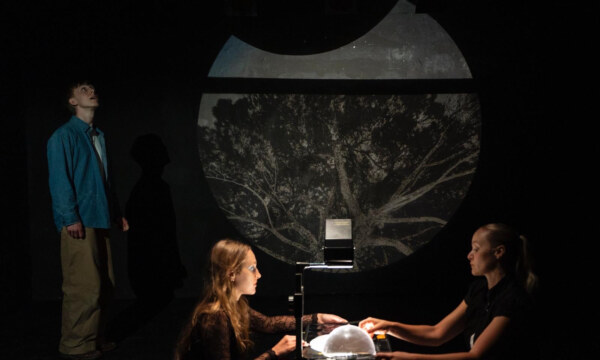
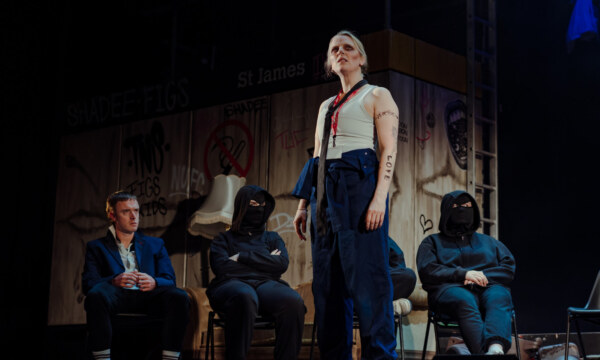
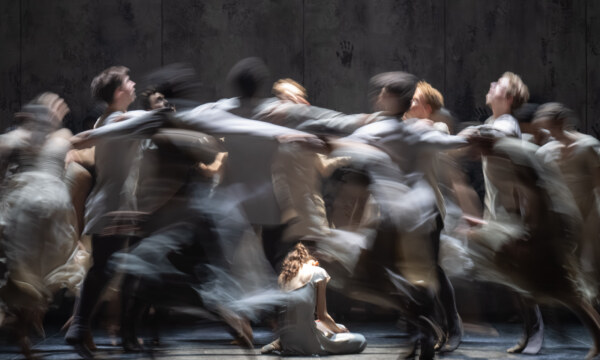
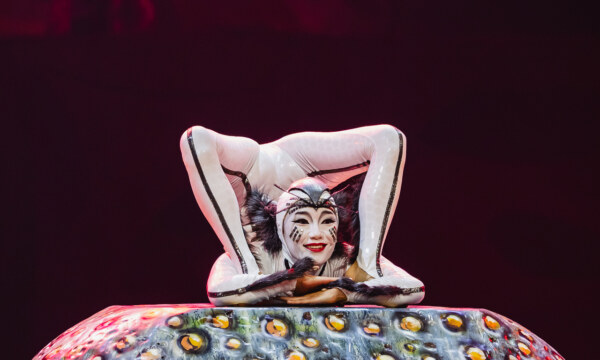
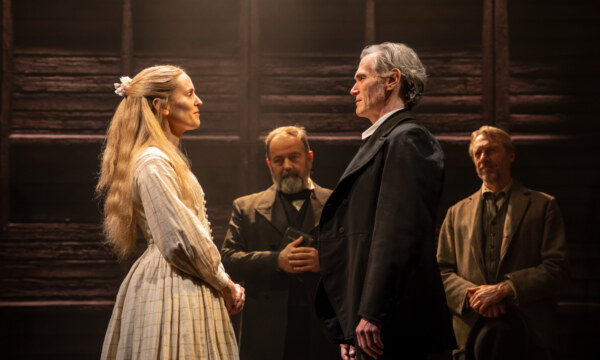

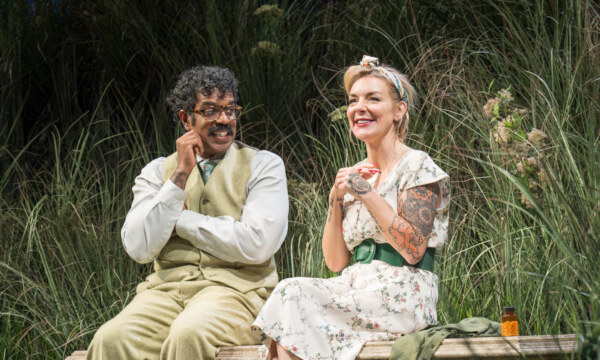
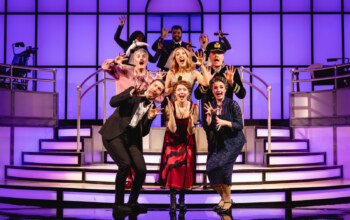
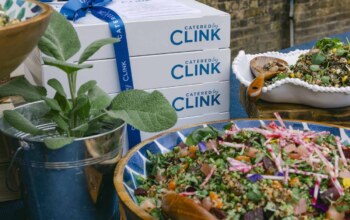
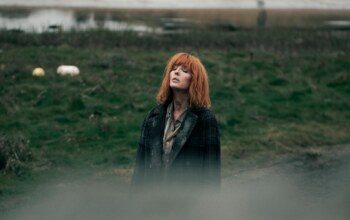
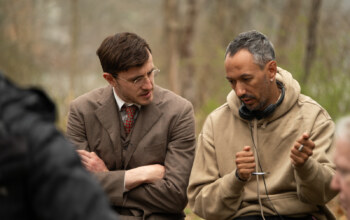
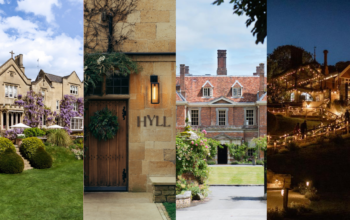
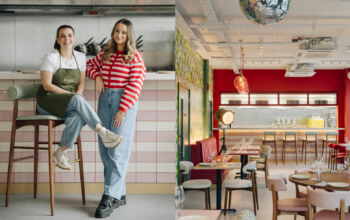
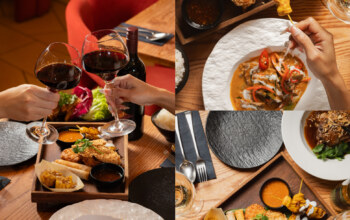
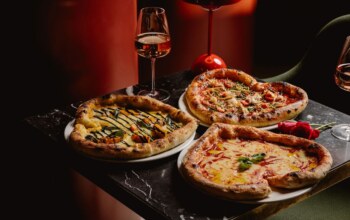
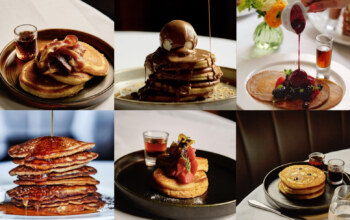
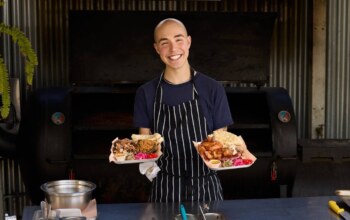

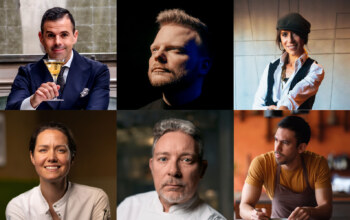

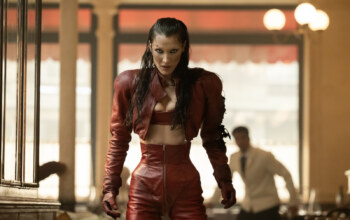

Facebook
Twitter
Instagram
YouTube
RSS